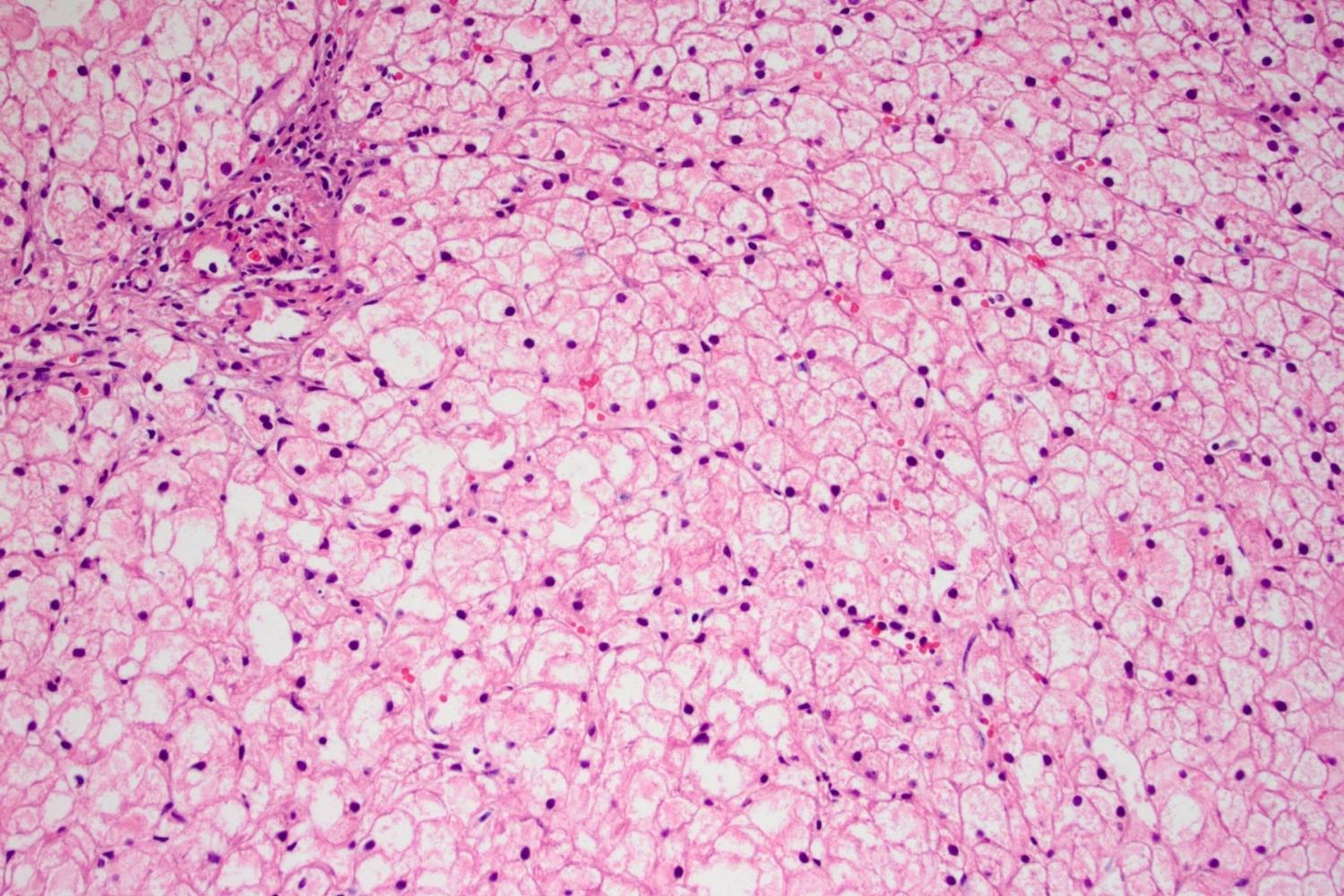
Hers' Disease, also known as Glycogen Storage Disease Type VI (GSD VI), is a rare genetic disorder affecting the liver's ability to break down glycogen into glucose. This condition can lead to symptoms like low blood sugar, growth delays, and an enlarged liver. Hers' Disease is inherited in an autosomal recessive pattern, meaning both parents must carry the gene for a child to be affected. Though it might sound complex, understanding this condition can help manage its symptoms better. This article will provide 25 essential facts about Hers' Disease to give you a clearer picture of what it entails and how it impacts those living with it.
Key Takeaways:
- Hers' Disease is a rare genetic disorder that affects the liver's ability to break down stored glucose. It can cause symptoms like enlarged liver and low blood sugar, but managing it with a high-carbohydrate diet and regular check-ups is key.
- Research for Hers' Disease is ongoing, with potential treatments like gene therapy and new medications being explored. Improved genetic testing and support groups are also helping to make living with the disease easier for affected families.
What is Hers' Disease?
Hers' Disease, also known as Glycogen Storage Disease Type VI, is a rare genetic disorder. It affects the body's ability to break down glycogen, a stored form of glucose, into usable energy. This condition primarily impacts the liver.
- Hers' Disease is named after Dr. Henri-Géry Hers, who first described it in 1959.
- It is caused by mutations in the PYGL gene, which encodes the liver glycogen phosphorylase enzyme.
- This disease is inherited in an autosomal recessive pattern, meaning both parents must carry the defective gene.
- Symptoms often appear in early childhood, typically between ages 1 and 5.
- Common symptoms include an enlarged liver (hepatomegaly), low blood sugar (hypoglycemia), and growth delays.
- Unlike other glycogen storage diseases, Hers' Disease usually does not affect the muscles or heart.
- The severity of symptoms can vary widely among individuals.
- Diagnosis often involves blood tests, liver biopsy, and genetic testing.
- Treatment focuses on managing symptoms, particularly maintaining normal blood sugar levels.
- Frequent, small meals rich in carbohydrates can help prevent hypoglycemia.
- Some patients may require cornstarch supplements to maintain blood sugar levels overnight.
- Regular monitoring by a healthcare provider is essential for managing the disease.
How Common is Hers' Disease?
Hers' Disease is considered a rare condition. Its prevalence and incidence rates provide insight into how many people are affected.
- The exact prevalence of Hers' Disease is unknown, but it is estimated to affect fewer than 1 in 100,000 people.
- It is more common in certain populations, such as the Ashkenazi Jewish community.
- Due to its rarity, many healthcare providers may not be familiar with the condition.
- Genetic counseling is recommended for families with a history of Hers' Disease to understand their risk.
Living with Hers' Disease
Managing Hers' Disease involves a combination of dietary adjustments, regular medical check-ups, and lifestyle modifications.
- Children with Hers' Disease often require a high-carbohydrate diet to maintain energy levels.
- Regular physical activity is encouraged, but strenuous exercise should be avoided to prevent hypoglycemia.
- Parents and caregivers should be educated on recognizing and treating low blood sugar episodes.
- Medical alert bracelets can be useful for children with Hers' Disease in case of emergencies.
- Psychological support may be beneficial for children and families coping with the chronic nature of the disease.
Research and Future Directions
Ongoing research aims to improve understanding and treatment of Hers' Disease. Advances in genetics and medicine hold promise for the future.
- Researchers are exploring gene therapy as a potential treatment for Hers' Disease.
- Clinical trials are investigating new medications that could help manage symptoms more effectively.
- Improved genetic testing techniques are making it easier to diagnose Hers' Disease early.
- Patient registries and support groups are helping to connect families and share information about living with Hers' Disease.
Final Thoughts on Hers' Disease
Hers' disease, a rare genetic disorder, affects the liver's ability to break down glycogen. This condition can lead to symptoms like low blood sugar, enlarged liver, and growth delays. Early diagnosis and proper management are crucial for improving quality of life. Treatments often include a specialized diet to maintain blood sugar levels and regular monitoring by healthcare professionals.
Understanding the genetic basis of Hers' disease helps in providing better care and support for those affected. Ongoing research aims to find more effective treatments and possibly a cure in the future. Awareness and education about this condition can make a significant difference in the lives of patients and their families.
By staying informed and proactive, individuals with Hers' disease can lead healthier, more fulfilling lives. Knowledge truly is power when it comes to managing rare genetic disorders.
Frequently Asked Questions
Was this page helpful?
Our commitment to delivering trustworthy and engaging content is at the heart of what we do. Each fact on our site is contributed by real users like you, bringing a wealth of diverse insights and information. To ensure the highest standards of accuracy and reliability, our dedicated editors meticulously review each submission. This process guarantees that the facts we share are not only fascinating but also credible. Trust in our commitment to quality and authenticity as you explore and learn with us.
